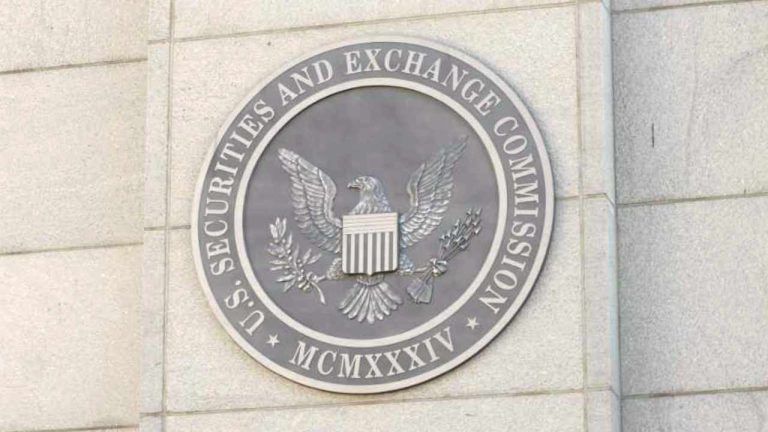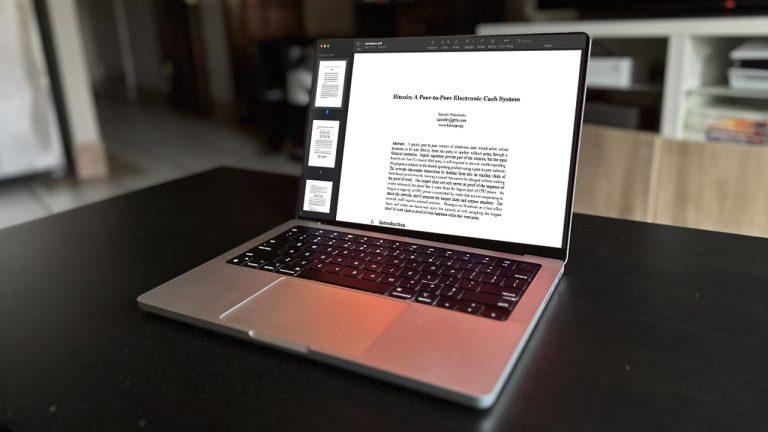 The U.S. Securities and Exchange Commission (SEC) has opposed Coinbase’s motion to compel discovery in a case where the SEC alleges Coinbase violated federal securities laws by failing to register its operations and services. Coinbase’s extensive discovery demands include internal SEC communications, inter-agency communications, and all documents related to digital assets, which the SEC deems […]
The U.S. Securities and Exchange Commission (SEC) has opposed Coinbase’s motion to compel discovery in a case where the SEC alleges Coinbase violated federal securities laws by failing to register its operations and services. Coinbase’s extensive discovery demands include internal SEC communications, inter-agency communications, and all documents related to digital assets, which the SEC deems […]

Coinbase initially demanded a subpoena into Gary Gensler’s private communications before his time as SEC Chair but has changed tactics in its latest letter to the judge.
Crypto exchange Coinbase has shifted tactics amid its effort to subpoena the United States Securities and Exchange Commission Chair Gary Gensler — and is now seeking his private communications only while serving as Chair.
Coinbase’s lawyers initially argued that access to Gensler’s private chats — both before and during his tenure as SEC Chair — was an “appropriate source of discovery” to mount their defense in the securities regulator’s lawsuit against them.
But a July 15 filing states Coinbase is now going to seek access to Gensler’s communications during his time as SEC Chair after Judge Katherine Polk Failla showed a reluctance to accept Coinbase’s request last week:

Attorneys representing the alleged fraudster, Avraham Eisenberg, convinced the judge that more time was needed to sift through discovery materials submitted by U.S. prosecutors.
Lawyers representing the $116 million Mango Markets exploiter have convinced a judge to postpone the fraud trial until April 8, 2023.
Avraham Eisenberg’s fraud trial was set to commence on Dec. 4 but several circumstances impacted his trial preparations, according to his lawyers, who filed a successful motion for a continuance to District Court Judge Arun Subramanian on Nov. 2.
“As discussed in today’s conference, the motion for continuance is GRANTED. Trial in this case will begin on April 8, 2024,” Subramanian stated in a Nov. 3 court filing.
U.S. prosecutors contested the motion for continuance but were unsuccessful. Subramanian also ordered United States prosecutors and Eisenberg's lawyers to submit a revised schedule for pretrial motions and submissions by Nov. 7.
Despite confessing his involvement in the Mango Markets exploit, Eisenberg plead not guilty to three criminal counts for commodities fraud, commodity manipulation and wire fraud in June.

In the motion, Eisenberg’s attorneys said they needed more time to sift through discovery materials submitted by U.S. prosecutors.
“The government has produced voluminous discovery in this case on a rolling basis [...] which the defense is still analyzing and conferring with the client about.”
The lawyers added that they lost time to prepare with Eisenberg when he was “unexpectedly” transferred to the Metropolitan Detention Center (MDC) in Brooklyn on Oct. 26.
Eisenberg wasn’t permitted to transfer the discovery materials, which he annotated along with other legal paperwork relevant to the trial.
“The move to the MDC has already, and will continue to, severely inhibit defense counsel’s access to Mr. Eisenberg,” the lawyers added.
MCD is the prison which former FTX CEO Sam Bankman-Fried returned to after he was convicted on all seven fraud-related charges on Nov. 2.
Related: How low liquidity led to Mango Markets losing over $116 million
The Securities and Exchange Commission also charged Eisenberg on Jan. 20, alleging that he manipulated the Mango Markets governance token, MNGO, by taking out “massive loans” against its inflated collateral and draining Mango’s treasury of around $116 million.
Mango Markets is now also suing Avraham Eisenberg, seeking the return of the remaining $47 million he stole.https://t.co/7pDoHuigH4 https://t.co/H48nPPl13h
— web3 is going just great (@web3isgreat) January 26, 2023
It followed Eisenberg’s arrest in Puerto Rico about three weeks earlier on Dec. 27.
Eisenberg publicly confessed to the exploit on Oct. 15, 2022, arguing that his actions were completely legal. He initially sent back $67 million to Mango Markets' decentralized autonomous organization as part of a bounty deal. However the team behind Mango Markets later sued Eisenberg for $47 million in damages plus interest.
Magazine: Should crypto projects ever negotiate with hackers? Probably
 On April 5, 2023, the independent blogger Andy Baio published a post on his Waxy Blog that explained every version of macOS from Mojave 10.14.0 to the current version hosts a copy of Satoshi Nakamoto’s seminal Bitcoin white paper. Mac users can type a simple command in the terminal, and all nine pages describing Nakamoto’s […]
On April 5, 2023, the independent blogger Andy Baio published a post on his Waxy Blog that explained every version of macOS from Mojave 10.14.0 to the current version hosts a copy of Satoshi Nakamoto’s seminal Bitcoin white paper. Mac users can type a simple command in the terminal, and all nine pages describing Nakamoto’s […] After a small decrease of 0.49% on Feb. 12, 2023, Bitcoin’s network difficulty is expected to experience a significant increase in three days on Feb. 24. Estimates indicate the difficulty could see the largest rise of the year, surpassing the 10.26% increase that occurred on Jan. 15 at block height 772,128. Next Bitcoin Difficulty Change […]
After a small decrease of 0.49% on Feb. 12, 2023, Bitcoin’s network difficulty is expected to experience a significant increase in three days on Feb. 24. Estimates indicate the difficulty could see the largest rise of the year, surpassing the 10.26% increase that occurred on Jan. 15 at block height 772,128. Next Bitcoin Difficulty Change […] In this edition of the Bitcoin.com News week in Review: never-before-seen notations discovered from Bitcoin creator Satoshi Nakamoto, an update on progress toward the next Bitcoin halving event, Mad Money’s Jim Cramer challenging crypto investors to bet against him, and more. Sleuth Discovers Satoshi’s Long-Lost Bitcoin Version 0.1 Codebase, Raw Code Contains Bitcoin Inventor’s Never-Before-Seen […]
In this edition of the Bitcoin.com News week in Review: never-before-seen notations discovered from Bitcoin creator Satoshi Nakamoto, an update on progress toward the next Bitcoin halving event, Mad Money’s Jim Cramer challenging crypto investors to bet against him, and more. Sleuth Discovers Satoshi’s Long-Lost Bitcoin Version 0.1 Codebase, Raw Code Contains Bitcoin Inventor’s Never-Before-Seen […]
Bitfinex and Tether’s legal representatives also want the law firm to return or destroy all defendant-issued documents and confirm they haven't been shared.
USDT-issuer Tether wants law firm Roche Freedman “terminated” as counsel from the Bitfinex and Tether class action lawsuit following a motion from Kyle Roche to be removed as counsel in the case.
In an Aug. 31 court order request by Elliot Greenfield of Debevoise & Plimpton LLP, the law firm representing Tether and Bitfinex requested that Roche’s law firm be removed from the case entirely and to certify that they’ve returned or destroyed all defendant-issued documents and have not shared them with any third-party, including Ava Labs.
The request follows shortly after Roche submitted a Notice of Motion to Withdraw from the Tether class action lawsuit amid ongoing fallout from a recent CryptoLeaks expose, which alleged the U.S. lawyer had a secret pact to “harm” Ava Labs competitors in exchange for AVAX tokens and Ava Labs equity.
Greenfield said Roche's statements published on the CryptoLeaks website raised a "serious concern" that Kyle Roche “may be abusing the discovery process” and "misusing information" he learns through litigation.
"He states that he is Ava Lab’s 'crypto expert' because he 'sue[s] half the companies in the space' and 'know[s] where this market is going' because he has 'seen the insides of every single crypto company.'”
Greenfield said the concerns are highly relevant to the case, highlighting that Roche Freedman LLP “has served a number of document requests seeking information that has no apparent link to the claims and defenses in this lawsuit.”
The lawyer has also stressed the need for the documents to be repressed, “as they include not only confidential, competitively sensitive information about Defendants’ businesses but also information that, if disclosed, would threaten the privacy and security of Defendants and their customers.”
While Kyle Roche has filed motions to remove himself from the case and others, Greenfield said the withdrawal of Roche “does little if anything to address the serious issues regarding the potential misuse of discovery.”
“Even if he is no longer counsel of record, he would still have access to discovery materials, would retain the ability to direct the conduct of other lawyers at his firm, and would profit from any potential recovery in this lawsuit.”
Greenfield added that the “removal would not prejudice Plaintiffs,” as they would continue to be represented by “two other large and experienced firms” including Selendy Gay Elsberg PLLC and Schneider Wallace Cottrell Konecky LLP.
The class action lawsuit initiated in 2019 alleged that Tether and Bitfinex manipulated the crypto market by issuing unbacked Tether (USDT) “in an effort to signal to the market that there was enormous, organic demand for crypto commodities.”
Over the last few days, Roche has also withdrawn from the Binance, Solana, Tron, BitMEX, Nexo, and Dfinity lawsuits.
 Off the coast of the Irish Sea, humans have lived on the Isle of Man since before 6500 B.C. The island has a robust history of Viking Age treasures. According to a recent announcement from Manx National Heritage, a heritage agency located there, an amateur treasure hunter recently discovered a hoard of Viking silver on […]
Off the coast of the Irish Sea, humans have lived on the Isle of Man since before 6500 B.C. The island has a robust history of Viking Age treasures. According to a recent announcement from Manx National Heritage, a heritage agency located there, an amateur treasure hunter recently discovered a hoard of Viking silver on […] Ripple Labs has reportedly won discovery from the U.S. Securities and Exchange Commission (SEC). The court has ordered the commission to produce internal records relating to discussions of whether XRP tokens are similar to bitcoin and ether, which are currently not classified as securities. Ripple Wins Discovery From SEC, Gaining Access to the Commission’s Internal […]
Ripple Labs has reportedly won discovery from the U.S. Securities and Exchange Commission (SEC). The court has ordered the commission to produce internal records relating to discussions of whether XRP tokens are similar to bitcoin and ether, which are currently not classified as securities. Ripple Wins Discovery From SEC, Gaining Access to the Commission’s Internal […]